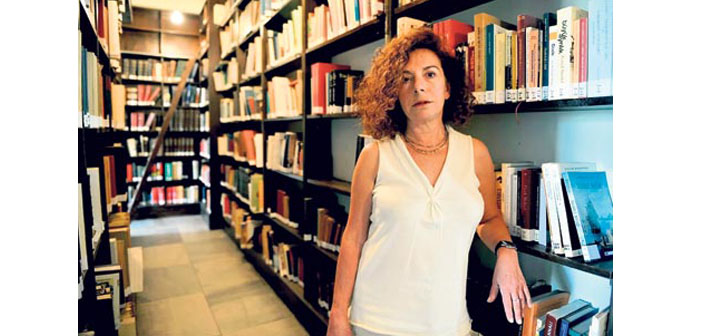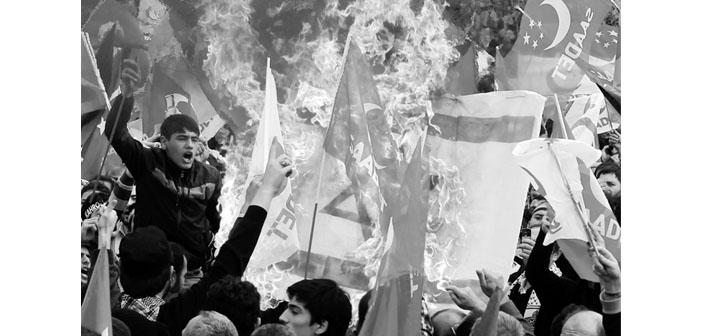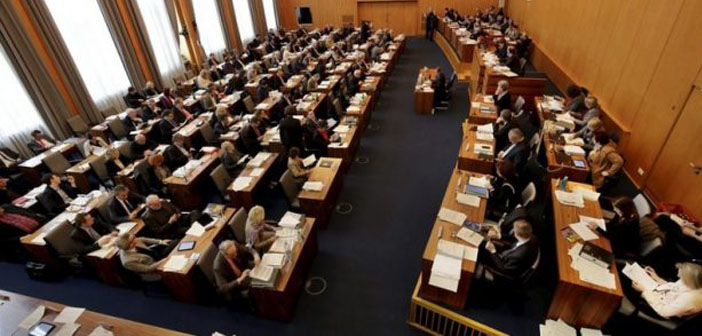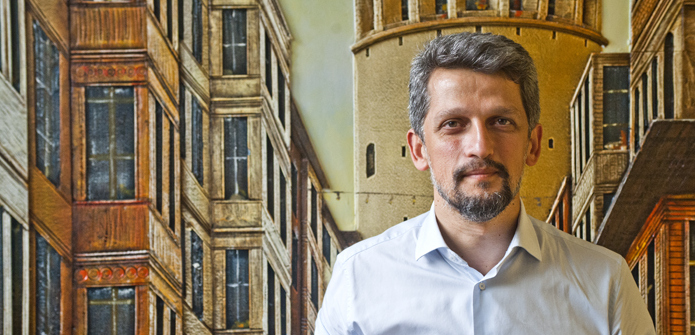The debate on “confrontation” is heated again after Bundestag's Armenian Genocide resolution. Germany is one of the remarkable countries in terms of reckoning and we talked to Prof. Nora Şeni from Paris VIII University about Germany's process of confrontation with Holocaust and what Turkey should do in order to confront with 1915.
How and when did
Germany's process of confrontation with Holocaust start?
There were different stages in Germany's confrontation. In order to follow those stages, we should remember the “never again” motive, which had been prevailed in Europe after World War II. This is a slogan which expresses the horror in the face of the devastation caused by war and the brutality that reached its peak in Holocaust. It expresses the doubt about one's own humanity and civilization. It has a determination for not letting something like this happen “again”; so, the constitution and preservation of “peace” and “social harmony” became the baseline of European political mentality after World War II. In the aftermath of the war, Europe had chosen formal democracy, which was considered as the guarantee of peace and the best regime for constituting social harmony, and stuck to it heart and soul. In this way, Europe broadened the political sphere and increased the participation (though the determination expressed by “never again” slogan couldn't have prevented Rwanda and Srebrenica genocides). The legal and political order and institutions formed in Europe after 1945 are compatible to this mentality. One of the necessities of this mentality is not to prevent the expression of memory and plurality of memories (even if they are rivals). With a Freudian orientation, it was accepted that oppressed memories would prevent a democratic and harmonious society.
However, these values hadn't rooted and prevailed in the society by themselves. This happened after social struggles and resistance forced the rulers to accept those values. These processes followed different courses and stages in Germany, which has the first degree of responsibility and in France, which showed both resistance and complicity. However, these countries managed to form a procedure for acknowledging their responsibilities one way or the other. They had chosen to rewrite the history and national narration and redistribute the roles of hero/downtrodden. They expressed apologies and tried to make amends. These memory-oriented behaviors became widespread in Europe and in the world and even turned into the standard for democratic countries.
Turkey, with its state, artists and thinkers, remained stranger to this European identity, which developed after World War II. Today, Europe has this consciousness, which Turkey lacks. There are two main reasons for this: Firstly, Turkey wasn't engaged with this devastating war. Secondly, forming a homogeneous population has been a passion that transferred to Turkish Republic from Ottoman Empire. While Europe is obsessed with peace, Turkey is obsessed with forming a society based on a single religious and ethnic identity. Thus, Turkey continues to distrust the ones who are not Turks and Sunnis and does everything to alienate them.
When did Germany achieve the real confrontation? How and when did the historical narration in the books change?
When we look at Germany's confrontation process, the most remarkable aspects of it are as the following: it started very late, progressed by force and turned into a lesson of democracy in itself after '90s. Right after the war and Nuremberg trials that were designed to try the Nazi military men and politicians only, the triumphant allies conducted an operation for getting the Nazis off Germany and universities and leading institutions dismissed the official members of Nazi party. However, the former Nazis who are accomplices to massacres and tortures continued to live and work comfortably, though they kept low profiles. For a while, nobody talked about it or called anybody into account. For 20 years, between 1948 and 1969, Germany had lived with an unbearable silence and lies. Publication of Anne Frank's diary broke this silence. In 1961, Adolf Eichmann was tried; he was captured thanks to the intelligence that prosecutor Fritz Bauer relayed to Israelis. This trial drew attention worldwide. Postwar generation started to question what their parents did during the war. At the time, concentration and extermination camps were still unknown to them. Annihilation of Jews wasn't in the history books yet.
Between 1963-1965, a lawsuit against 22 mid- to lower-level officials in concentration and extermination camps was opened, thanks to evidences gathered by 3 courageous prosecutors. This trial process in Frankfurt, which is also known as second Auschwitz trial, revealed that Germans still weren't ready for confrontation and expressing regrets. At the time, Nazis and their accomplices were still living without facing any trouble and the truth about extermination camps was still unspoken. However, this trial paved the way for a new stage. Guilio Ricciarelli's movie Labyrinth of Lies is about this issue.
After 1968 events, the young generation moved to a new stage by questioning their fathers. In 1969, Chancellor Willy Brant, who resisted Nazis and left Germany in order not to join them, knelt down and apologized in Polish capital Warsaw, where 3 million Jews were killed. With this gesture, Germans “discovered” that the essence of Nazism is antisemitism. Holocaust series in the US was watched by millions and Gunther Grass revealed Germans' crimes.
After that, intellectuals, artists, historians, journalists, media surveys, novels and plays became important factors in the fast progression of the confrontation after '70s.
What should Turkey's first step be for confrontation?
It should be reminded that being European, democracy, social harmony and solidarity is not possible unless you make amends for the past. 20 years ago, 30 people were burned alive in a hotel for all the world to see and they “forgot” about it and said, “Burning people alive doesn't belong to our tradition”; this reveals the distance between us and Europe.





